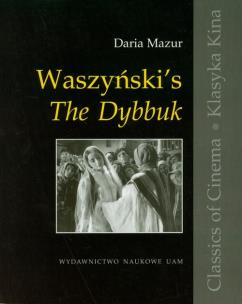- Regulamin
- Koszty dostawy
- Kontakt
- Dziś w ofercie 94 247 produktów
KSIĄŻKI
- Albumy
- Beletrystyka
- Biografie
- Dla dzieci i młodzieży
- Edukacja
- Ekonomia i biznes
- Ezoteryka
- Historia
- Informatyka
- Kalendarze
- Komiksy
- Kryminał i sensacja
- Kultura i sztuka
- Literatura faktu
- Literatura kobieca
- Literatura piękna
- Medycyna
- Nauka języków obcych
- Nauki humanistyczne
- Nauki przyrodnicze
- Nauki ścisłe
- Podręczniki
- Poradniki
- Prawo i administracja
- Przewodniki i podróże
- Psychologia
- Religia
- Sport
- Technika
- Zdrowie i uroda
ZABAWKI
- Artykuły dla niemowląt
- Bączki
- Bujaki i skoczki
- Ciągnij / pchaj
- Dla niemowlaka
- Grzechotki i gryzaki
- Karuzele i pozytywki
- Maty i centra zabaw
- Projektory i lampki
- Sortery i piramidki
- Zabawki
- Edukacyjne i kreatywne
- Figurki
- Klocki
- Lalki
- Pojazdy
- Pluszaki i maskotki
- Sport i rekreacja
- Zabawa w dom
- Zabawki drewniane
- Puzzle
- Do 200 elementów
- 201-500 elementów
- 501-1000 elementów
- Ponad 1000 elementów
- Puzzle 3D
ART. PAP
- Artykuły biurowe
- Artykuły piśmiennicze
- Bloczki i kartki samoprzylepne
- Dziurkacze
- Kalkulatory
- Nożyczki i nożyki
- Skoroszyty
- Teczki
- Wizytowniki
- Zszywacze
- Artykuły szkolne
- Akcesoria szkolne
- Modelowanie
- Notatniki i zeszyty
- Piórniki
- Plecaki i torby
- Pojemniki na śniadanie
- Pomoce naukowe
- Przybory matematyczne
- Przybory rysunkowe
- Upominki i gadżety
- Akcesoria do książek
- Artykuły balowe
- Breloki i zawieszki
- Drobiazgi, różności
- Kubki
- Oferta Świąteczna
- Papeteria, kartki i naklejki
- Skarpetki Many Mornings
- Upominki
GRY
MULTIMEDIA
- Audiobooki
- Beletrystyka
- Biografie i wspomnienia
- Dla dzieci i młodzieży
- Fantastyka
- Filozofia i religia
- Historia
- Literatura faktu i reportaż
- Poradniki
- Sensacja i kryminał
- Filmy DVD/BD
- Animowane
- Biograficzne
- Fantasy
- Horrory
- Komedie
- Romanse
- Science Fiction
- Sensacyjne / kino akcji
- Thrillery
- Muzyka CD
- Alternatywna
- Blues
- Dla dzieci
- Jazz
- Klasyczna
- Piosenka aktorska i poetycka
- Pop
- Rock
- Świąteczna i kolędy
- Akcesoria GSM
- Głośniki
- Kable i adaptery
- Klawiatury
- Myszy
- Słuchawki
PROMOCJE
ZDROWIE
LEGO

Waszyński's The Dybbuk
Autor: Mazur Daria
Wydawca:
Wydawnictwo Naukowe UAM
ISBN:
9788323220428
EAN:
9788323220428
oprawa:
Miękka
format:
17.0x21.0cm
język:
angielski
Seria:
KLASYKA KINA
liczba stron:
114
rok wydania:
2009
(0) Sprawdź recenzje
Opis produktu
Zasady bezpieczeństwa
Michał Waszynski's Dybuk, reckognised as a masterpiece of European interwar cnema, even described as "the most important film in Polish cinematography", is a peculiar work, whose extraordinary form has haunted viewers' imagination around the world for seventy years. The film conveys an image of spiritual yearning, sublimity, mystical passion and surging emotions with hypnotic power rarely seen in cinema. The charm of The Dybbuk - firmly rooted in the inassesible world of Hassidic beliefs and traditions - paradoxically lies in universality of the desires it portrays. Depisted in poignantway, the lot of Khonen and Leah does not let anyone remain o\at the level of culturally oreinted observation. The gestures, the expressions of bodies and facestouch us deep inside, by such means the passed, distant and unknownis made close and familiar. Would then the dybbuk cast a spell upon contemporary viewer, in a meaning given to it by Kabbalah master Isaan Ashkenazi Luria - as the one who brings consolation?
CENA:
15,92
zł
Cena detaliczna:
19,95 zł
20%
rabatu
Najniższa cena z ostatnich 30 dni: 15,96 zł
Produkt niedostępny
Uwaga!!!
Ten produkt jest zapowiedzią. Realizacja Twojego zamówienia ulegnie przez to wydłużeniu do czasu premiery tej pozycji. Czy chcesz dodać ten produkt do koszyka?


Wybierz wariant produktu
